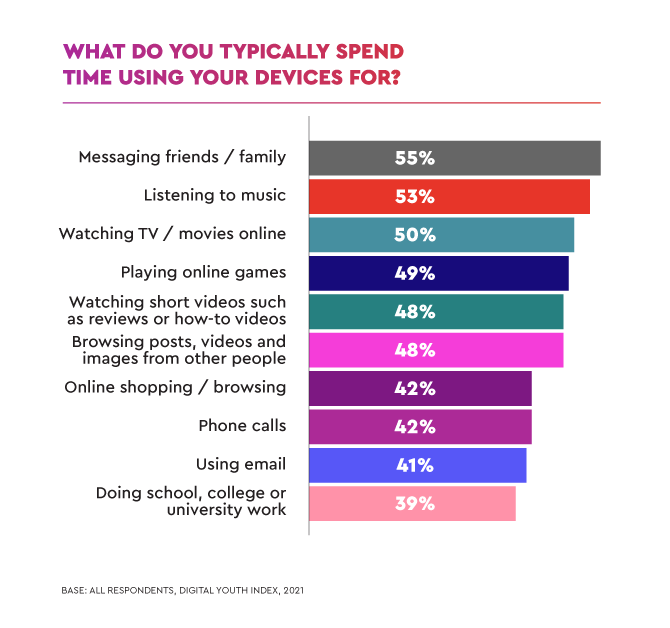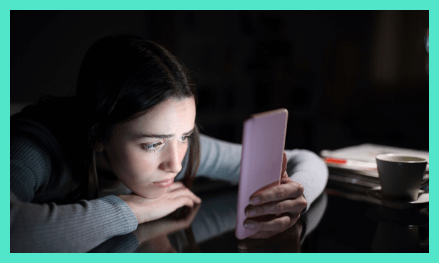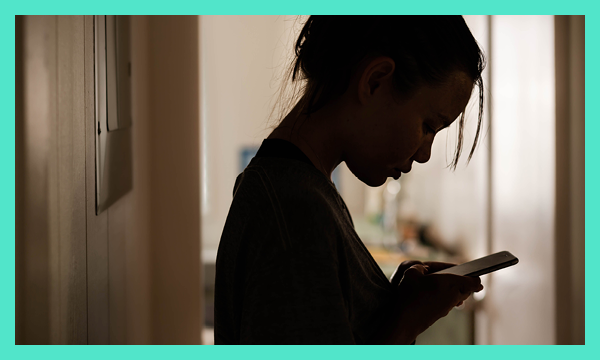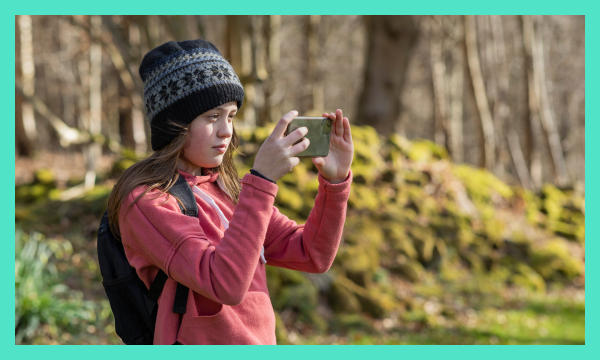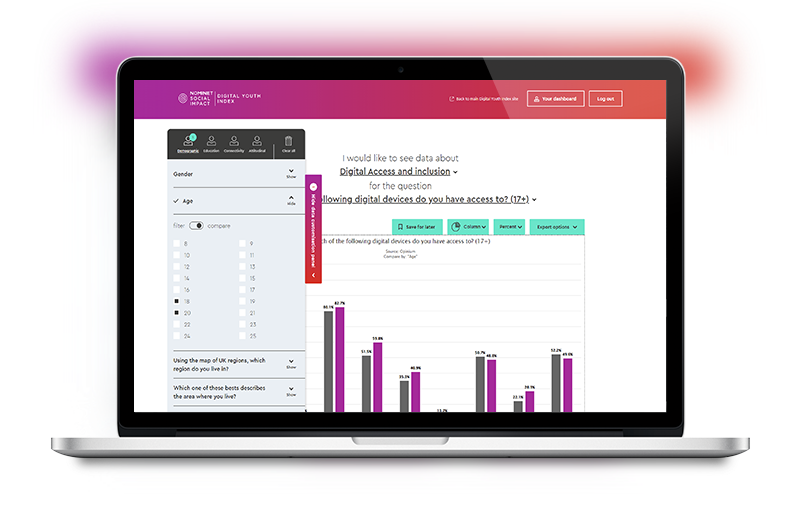More connected,
more isolated
Young people are more connected, yet feeling more isolated - what does this mean for digital mental health and wellbeing?
Insight
Digital access creates opportunities for connection but, at the same time, can exacerbate feelings of isolation. 55% of young people say they have been spending more time online due to the pandemic (equivalent of 8 million young people). 17 – 19-year-olds were especially likely to have spent more time online due to covid. 68% of this age group said they spent more time online while half (49%) said they felt isolated from others, and 59% worried about others having fun without them.
The qualitative research illustrates how social exclusion can seep into online gaming and messaging too; young people can become upset if their virtual avatars are treated unkindly, when they are excluded from group activities, removed from group chats, or are subjected to online bullying.
Our focus groups with parents and professionals working with young people highlighted some of the concerns adults have about young people becoming too dependent on online interactions, and the risk of this impacting how often they have face-to-face interactions in real life.
Overall, 17% of young people say their use of the internet and digital devices has a negative impact on their mental health compared 44% who say it has a positive impact. At the same time, 44% of young people feel isolated from others. This is particularly apparent in young adults, where there are higher feelings of isolation. Around half feel isolated and a quarter that their use of technology and the internet is negatively impacting their mental health.
Why does this matter?
Chatting to friends, playing games, watching TV, listening to music, and shopping make going online important for wellbeing, especially when we can’t leave home. And yet, 17-19-year-olds tell us the internet has had a negative impact on their mental health. We know a large part of this is finding a healthy balance with how we spend quality time online, build resilience to protect ourselves and knowing when to switch off.
Implications
- How are our digital connections affecting our in-person relationships and attitudes towards who we trust?
- How can we intentionally design online interactions to build positive social connection?
- What’s behind perceptions of communicating online as feeling more anonymous?
- How should provision or policy for EdTech incorporate factors of wellbeing – such as should watching a film on your school laptop be accepted in your usage policy?
